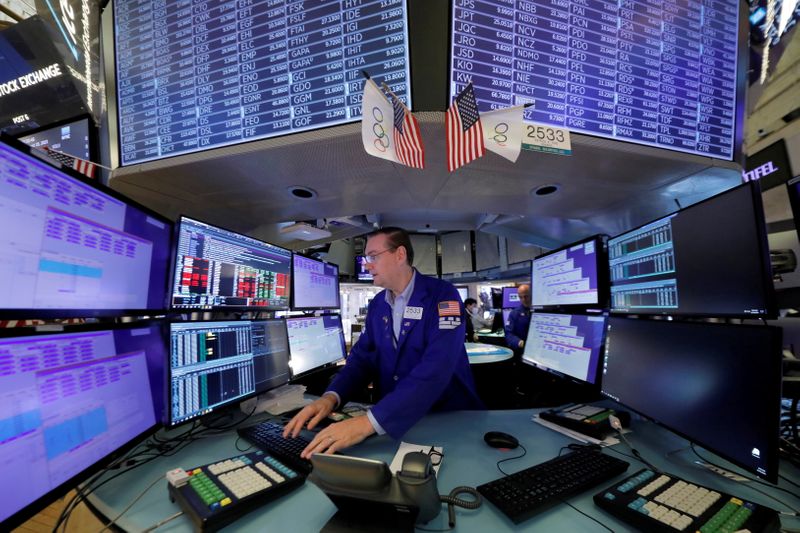By Gertrude Chavez-Dreyfuss
NEW YORK (Reuters) - Spreads on 10-year U.S. interest rate swaps over Treasuries hit their widest in more than six months due in part to worries about the potential fallout of Chinese property group Evergrande's financial troubles to the global economy.
In another sign of concern brewing in money markets, analysts cited three-month Libor, which rose to 12.5 basis points, a four-week peak, according to Refinitiv data, which may reflect some stress in the banking system.
Evergrande has been scrambling to raise funds to pay its many lenders, suppliers and investors. Regulators have warned that its $305 billion in liabilities could spark broader risks to China's financial system if its debts are not stabilized.
Spreads of interest rate swaps are typically viewed as indicators of market risk, analysts said. A higher spread suggests market participants are willing to swap their risk exposures, suggesting overall risk aversion.
The spread on 10-year U.S. swaps over benchmark Treasuries rose to 5.25 basis points, from 4 basis points late on Friday. The spread was 3.25 basis point late Monday.
U.S. 10-year swaps measure the cost of swapping fixed rate cash flows for floating rate ones over a 10-year term.
"Wider swap spreads reflect an expectation that Libor is going to move higher," said Dan Belton, fixed-income strategist, at BMO Capital in Chicago.
"And Libor is generally seen as the fear gauge. When there is financial market stress, Libor tends to widen and swap spreads tend to follow," he added.
Libor has been on a downtrend this year given excess cash in the banking system as a result of the Federal Reserve's asset purchases under its quantitative easing program. But Libor has perked up over the last week and a half.
That said, Belton clarified that wider spreads can also be attributed to technical factors.

"A lot of the moves has been technical in nature, a lot to do with the Libor transition. Interest rate swaps are still referencing Libor, but in two years, it will SOFR (secured overnight financing rates), plus a fixed spread," Belton said.
For now, global banks still use Libor to price U.S. dollar-denominated derivatives and loans, but they will soon have to transition to using SOFR.